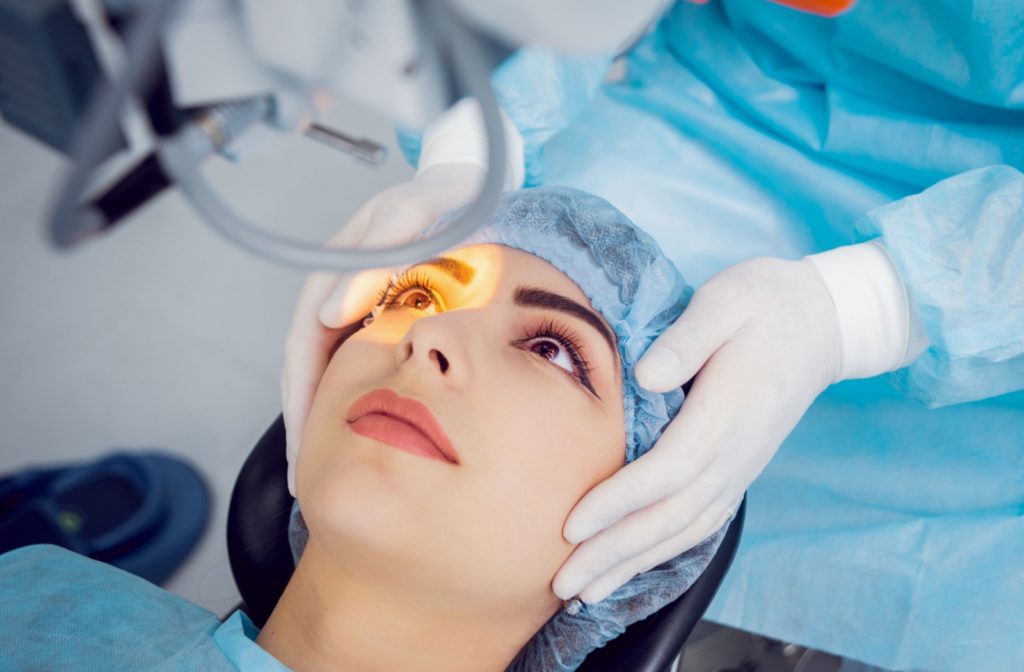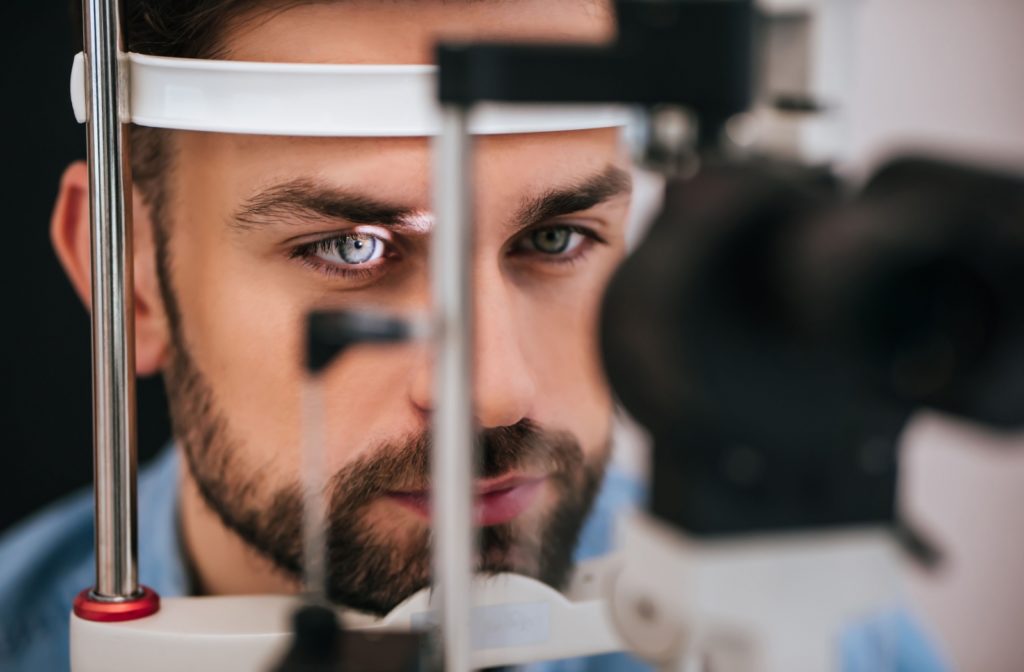Our eyes are one of the most vital organs, granting us the ability to perceive the world around us. Among the many delicate components that make up the eye, your retina plays a crucial role in capturing light and transmitting visual information to the brain.
Retinal detachment is a serious condition where the retina pulls away from its normal position, leading to vision impairment or even blindness if left untreated. A retinal detachment is considered an eye emergency that should be treated right away.
However, there are steps you can take to reduce the risk of retinal detachment: including getting regular eye exams, managing any underlying health conditions, physically protecting your eyes whenever possible, and getting high myopia under control if it affects you.
Understanding Retinal Detachment
Before delving into prevention strategies, it’s essential to understand what retinal detachment is and how it occurs. Retinal detachment occurs when the retina, the light-sensitive layer at the back of the eye, begins to separate from its underlying support tissue.
This separation is sort of like wallpaper peeling away from a wall. Such a condition may lead to significant visual disturbances, including the appearance of floaters, which are small, shadowy figures that move across one’s field of vision, flashes of light, or a shadow that obscures part of the visual field, akin to a curtain being drawn.
Within the eye, a gel-like substance known as the vitreous body fills the interior. With aging, the vitreous may undergo changes in consistency, diminish in volume, and exert traction on the retina.
In certain instances, this traction is forceful enough to create a tear in the retina. Should fluid from within the eye penetrate through this tear, it can exacerbate the retinal separation, resulting in a full detachment.
The implications of retinal detachment are severe, potentially resulting in the loss of vision if not promptly and appropriately addressed by a doctor. Fortunately, medical interventions are available to reattach the retina and restore its proper position.

Treatments for Retinal Detachment
The treatments for retinal detachment include laser surgery or cryotherapy, both aimed at sealing the retina back against the wall of the eye. It is important for individuals experiencing any unusual visual symptoms to seek immediate medical evaluation, as early detection and treatment significantly improve the prognosis for recovery.
Laser Surgery
In this procedure, your eye doctor will use a highly precise medical laser to target the interior of your eye. This process involves directing the laser around any retinal tears or holes, creating small burns. These burns are not harmful; instead, they heal by forming scars that repair, reattach, and resecure the retina.
During the procedure:
- Initially, an anesthetic will be applied to your eye to ensure comfort and prevent any sensation during the treatment.
- The laser is then carefully directed through the pupil to the affected area of the retina to mend the tear.
- It’s normal to observe brief flashes of light as the laser operates, which is part of the process.
Following the procedure, you may be prescribed anti-inflammatory eye drops to minimize swelling. It’s also advised to avoid strenuous activities, such as heavy lifting or intense exercise, to allow your eye to heal properly.
Cryotherapy
Another method your doctor may employ to repair a tear or hole in your retina involves the use of a freezing probe. This device, notable for its extreme cold, is applied directly to the sclera—the white outer layer of your eye—precisely over the affected area. The application of cold causes a small scar to form around the retinal tear, effectively securing it in place again.
During this treatment, the process unfolds as follows:
- Initially, your doctor will administer a local anesthetic to your eye to ensure comfort and mitigate any sensation during the procedure.
- Subsequently, the freezing probe is carefully positioned on the sclera adjacent to the retinal tear.
- You may experience a sensation of cold or slight pressure during the use of the freezing probe, which is entirely normal.
Following the application of the freezing probe, your doctor may prescribe specific eye drops designed to prevent swelling. It’s also recommended to avoid strenuous physical activities, such as heavy lifting or intense workouts, to facilitate optimal healing of your eye.
Prevention Strategies
Regular Eye Exams
Schedule routine eye exams with an optometrist or ophthalmologist to monitor your eye health. Early detection of any underlying conditions or risk factors can help prevent retinal detachment.
Manage Underlying Health Conditions
Properly manage any systemic health conditions such as diabetes and hypertension, as they can increase the risk of retinal detachment. Follow your healthcare provider’s recommendations for medication, diet, and lifestyle modifications.
Protect Your Eyes
Wear sunglasses and protective eyewear when outside and during sports or activities that pose a risk of eye injury, such as racquetball, basketball, or construction work. In case of trauma to the eye, seek immediate medical attention to prevent complications like retinal detachment.
Maintain Healthy Lifestyle Habits
Adopt a healthy lifestyle that includes a balanced diet rich in vitamins and minerals, regular exercise, adequate sleep, and avoiding smoking. These habits promote overall well-being and contribute to eye health.
Monitor Changes in Vision
Be vigilant of any sudden changes in vision, such as flashes of light, floaters, or a curtain-like shadow across your field of vision. These could be early signs of retinal detachment, and prompt evaluation by an eye care professional is crucial.
Address High Myopia
If you have severe nearsightedness (high myopia), consult with an eye care specialist for appropriate management strategies to reduce the risk of retinal detachment associated with this condition.
Safeguarding Your Vision for a Brighter Future
Retinal detachment is a serious eye condition that requires prompt medical attention to prevent permanent vision loss.
By following these preventive measures, you can reduce your risk of retinal detachment and safeguard your vision for years to come.
Remember, prioritizing regular eye exams, managing underlying health conditions, protecting your eyes, maintaining a healthy lifestyle, and promptly addressing any vision changes are key steps in preserving your eye health and overall well-being.
Hercules Optometric Group is here to help you take proactive steps to protect your vision for a brighter tomorrow–start by booking an eye exam with us!



